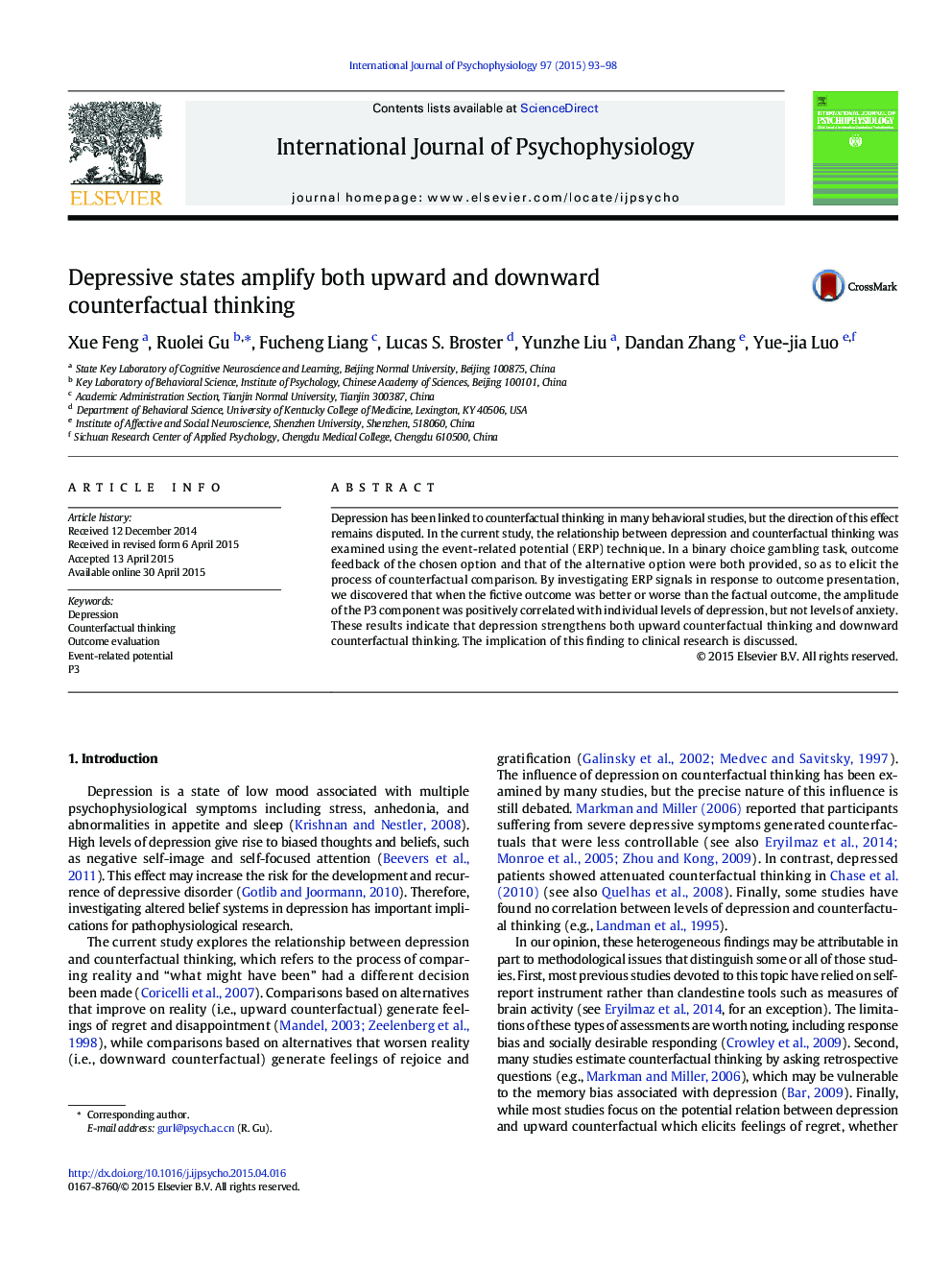| Article ID | Journal | Published Year | Pages | File Type |
|---|---|---|---|---|
| 929631 | International Journal of Psychophysiology | 2015 | 6 Pages |
•The relationship between depression and counterfactual thinking was investigated.•Both factual and fictive outcomes were provided during a simple gambling task.•The P3 correlated with depression when factual and fictive outcomes were different.•The correlation between P3 and depression was not influenced by levels of anxiety.
Depression has been linked to counterfactual thinking in many behavioral studies, but the direction of this effect remains disputed. In the current study, the relationship between depression and counterfactual thinking was examined using the event-related potential (ERP) technique. In a binary choice gambling task, outcome feedback of the chosen option and that of the alternative option were both provided, so as to elicit the process of counterfactual comparison. By investigating ERP signals in response to outcome presentation, we discovered that when the fictive outcome was better or worse than the factual outcome, the amplitude of the P3 component was positively correlated with individual levels of depression, but not levels of anxiety. These results indicate that depression strengthens both upward counterfactual thinking and downward counterfactual thinking. The implication of this finding to clinical research is discussed.
